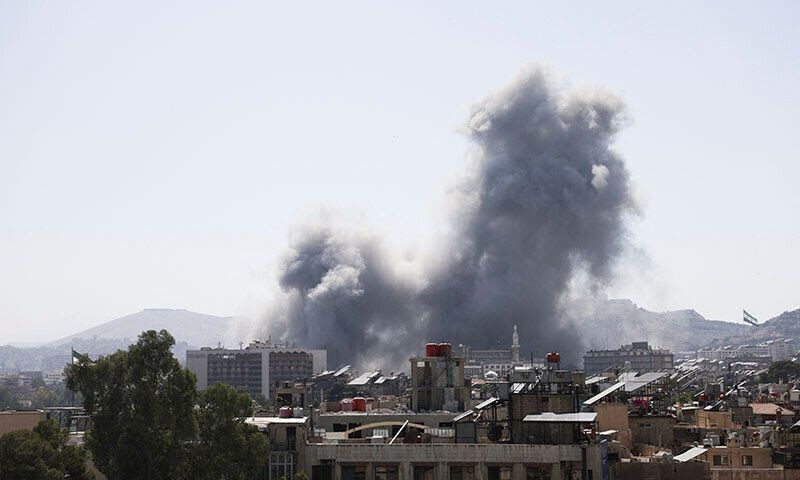On July 16, 2025, the Israeli Air Force launched powerful airstrikes deep into the heart of Damascus, Syria’s capital, targeting key regime buildings and military headquarters. Among the major targets was Hay’at al-Arkan, the central military command center of the Syrian Armed Forces. These strikes were not isolated incidents but came after days of rising violence in Suwayda, a Druze-majority region in southern Syria.
Israel claimed the strikes were a direct response to escalating aggression against the Druze community in Suwayda, blaming the current Syrian transitional government for fueling sectarian violence, and threatening regional stability.
What Triggered the Crisis?
Suwayda’s Fragile Balance Shattered
Suwayda had largely remained neutral throughout the Syrian civil war. But in recent months, tensions exploded after Druze civilians clashed with local Bedouin militias, following a series of kidnappings, robberies, and targeted attacks.
In early July 2025, violence escalated. Government forces entered Suwayda claiming to restore order, but instead, fierce battles erupted between local Druze defense groups and the Syrian Army. The government’s heavy-handed approach, including shelling of villages and arbitrary arrests, pushed the region to the brink of civil war.
Israeli Intervention: A Shift in Doctrine
Israel has always maintained a “buffer” approach towards southern Syria, monitoring threats from Iran-backed militias and Hezbollah. But this time, Israel shifted its focus directly to the Syrian transitional government itself.
On July 14 and 15, Israeli fighter jets struck government supply lines and armored convoys heading toward Suwayda. And on July 16, the stakes were raised dramatically: Israel struck the heart of Damascus.
According to military sources, targets included:
- Syria’s Defense Ministry Headquarters
- Command and logistics centers linked to operations in Suwayda
- Artillery bases responsible for shelling civilian areas
The Israeli government declared this action was not just military but humanitarian — aimed at protecting Druze civilians who share cultural and familial ties with Israel’s own Druze population in the Golan Heights.
Damascus Reaction and International Fallout
The Syrian transitional government condemned the strikes, accusing Israel of violating sovereignty and backing armed rebels. Damascus claimed its air defense systems intercepted some missiles, but independent observers confirmed massive structural damage and military casualties.
Meanwhile, the European Union voiced concern over civilian impact, while Russia and Iran called the strikes “acts of aggression.” The United States offered a more cautious tone, acknowledging Israel’s right to self-defense but urging de-escalation.
The Druze Factor: Identity and Resistance
The Druze people, a secretive ethnoreligious group, have historically distanced themselves from mainstream conflicts. But in Suwayda, they’ve taken a clear stand: defending their lands, culture, and survival.
Groups like “Men of Dignity” have formed local councils and resistance units, pushing back both government forces and extremist elements. For the first time in years, the Druze community is not just resisting — they’re asserting local autonomy.
Israel’s support, both symbolic and military, may embolden this trend further, potentially leading to long-term fragmentation of Syria.
Strategic Implications
For Israel:
- Demonstrates a willingness to strike beyond Iranian proxies
- Reinforces commitment to border stability and minority protection
- Sends a strong warning to the Syrian transitional government and its allies
For Syria:
- Shows the vulnerability of Damascus itself
- Highlights failure to control internal sectarian crises
- Risks further rebellion in southern provinces
For the Region:
- Increases chances of a multi-front conflict
- Encourages international intervention or sanctions
- Raises humanitarian concerns over displacement and civilian suffering
What Lies Ahead?
The Israel attack on Damascus marks a turning point in Middle East geopolitics. If Suwayda remains defiant and Israel continues its air campaign, the Syrian transitional government may face an irreversible collapse of authority in the south.
Diplomatic options are thinning. Humanitarian agencies fear a refugee crisis. And regional actors, from Iran to the EU, must now choose between silence or action.
The road ahead is uncertain, but one thing is clear: Damascus is no longer untouchable, and Suwayda is no longer silent.

